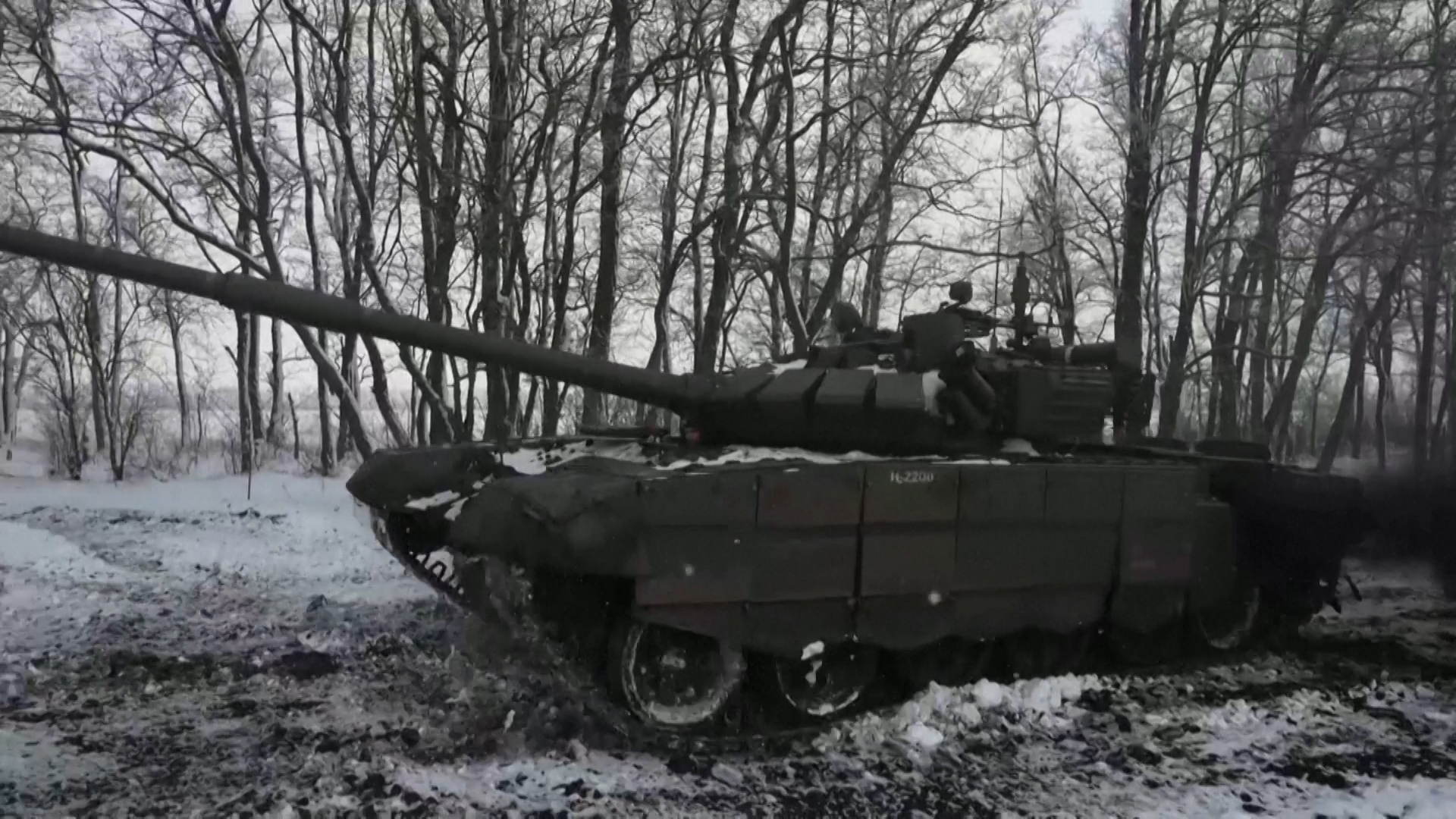03:34

As Russia continues its military build-up on the border of Ukraine, diplomats across Europe are working to reduce tensions.
The high-stakes standoff has left European lawmakers scrambling to present a united front, with the EU promising punishing sanctions on Russian President Vladimir Putin's government if the Kremlin chooses to attack.
Finding consensus within the 27 member bloc can prove challenging at the best of times, but Russia's military maneuvers on the border of Ukraine have exposed fault lines between different member states about how to respond to the crisis.
READ MORE
When surgery was without painkillers
Boris Johnson's partygate explained.
What is the Year of the Tiger?
Several EU members have promised to supply weapons to Kyiv to help repeal any Russian attack, including Poland, Czech Republic and Latvia. Others, like Denmark, have expressed a willingness to supply weapons in the future.
But for other countries, like Germany, supplying so-called "lethal aid" has been ruled out. According to Christian Schweiger, a political scientist from Chemnitz University of Technology, the German government's position is linked to post-reunification policies of avoiding conflict at all costs.
"Germany is not interested in heating up the conflict," he said. "Russia is a partner but we're deeply embedded in NATO and our role is to make sure that this conflict, or this potential conflict, leads towards a diplomatic solution and that we find a long-term solution between Ukrainian and Russian interests in the region.
"These are the typical phrases you always hear from Germany – a very civilian-powered approach – but if things get worse, then the next question is 'What next?', and Germany is struggling with this. It's a big problem for German foreign policy.”

Ukrainian politicians hold state flags of Ukraine's partners to show their appreciation of support – but there are deep divisions among those allies. /Mikhail Palinchak/AP
Ukrainian politicians hold state flags of Ukraine's partners to show their appreciation of support – but there are deep divisions among those allies. /Mikhail Palinchak/AP
As diplomatic letters continue to be exchanged between Moscow and Washington, some have questioned the role of the EU in the overall negotiating strategy. EU leaders, however, insist the bloc has an important seat at the negotiating table.
"You have member states very present in the discussion and member states are present in NATO and member states are present in the OSCE. Therefore, obviously there is a very European dimension to this debate," said Eric Mamer, chief spokesperson for the European Commission. "It's clear that there is a role and in any case, these issues concern Europe, and therefore there can be no solution without the EU."
As debates around deterrence efforts take place in Brussels, in Ukraine, much of the population is left to watch Russian troops line up along their border, with civilian groups taking part in paramilitary drills and basic weapons training. Preparations for a conflict they hope can be avoided at all costs.

